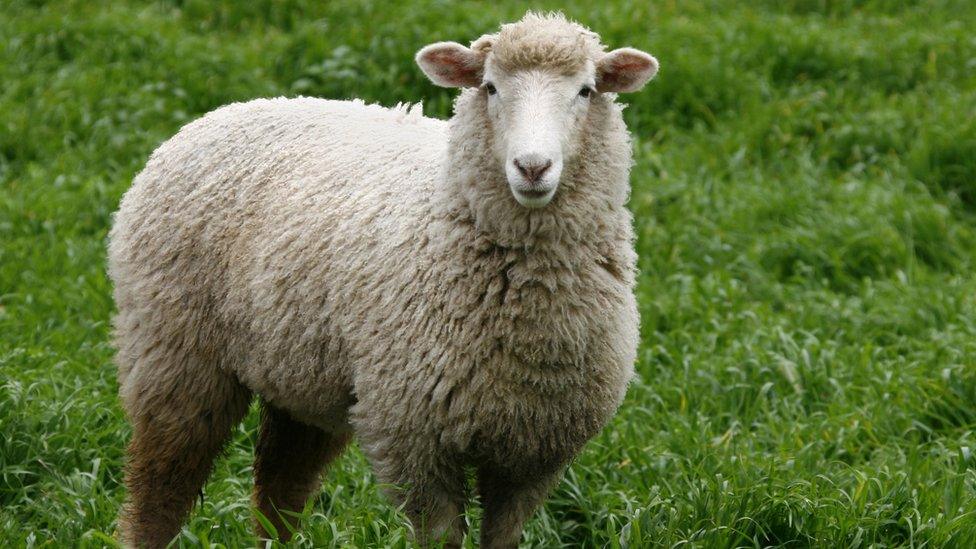Sheep disease MV detected in Northern Ireland
- Published

The disease was initially found in pedigree sheep sold from Northern Ireland to a flock owner in England
Investigations are under way after a highly-infectious sheep disease was detected in Northern Ireland.
Maedi Visna (MV) is a notifiable disease, spread through direct contact between sheep. It poses no risk to human health.
It causes pneumonia, wasting and progressive paralysis in affected animals.
It is understood the disease was initially found in pedigree sheep sold to a flock owner in England.
'Stamping out policy'
Tracing by Department of Agriculture, Environment and Rural Affairs (Daera) officials then detected it in four more sheep in Northern Ireland.
"A number of flocks are currently subject to movement restrictions following tracing from an infected premises," said Chief Veterinary Officer Robert Huey.
"Our approach remains to trace, test and remove infected animals, implementing a rigorous stamping out policy for the disease."
Daera said keeping Northern Ireland free of MV was "vital" for animal health and trading status.
What is Maedi Visna (MV)?
Maedi Visna (MV) is a highly-infectious viral disease affecting goats and sheep, according to Daera.
It is mainly transmitted through the ingestion of milk from a virus-infected sheep, although disease can be spread within flocks through direct contact or contamination.
The virus does not affect people and has no impact on human health.
MV has a long incubation period and cannot be detected early in an animal's life.
The signs are not normally visible until adulthood.
Last week, the Scottish Rural College which monitors the disease and runs a national accreditation scheme said sheep from Northern Ireland would be considered non-accredited for MV from Monday 14 February 2022.
But it is understood that is not the case.
The chief veterinary officer said Northern Ireland's MV-free status remains unchanged.
"A number of options to maintain Northern Ireland disease status are currently being considered, including the introduction of a Northern Ireland or all-island accreditation scheme similar to that in operation in Great Britain," Robert Huey said.
"Department officials continue to work closely with stakeholders and their counterparts in Great Britain and the Republic of Ireland.
"I would continue to stress that anyone moving animals into Northern Ireland should ensure that they source stock responsibly."